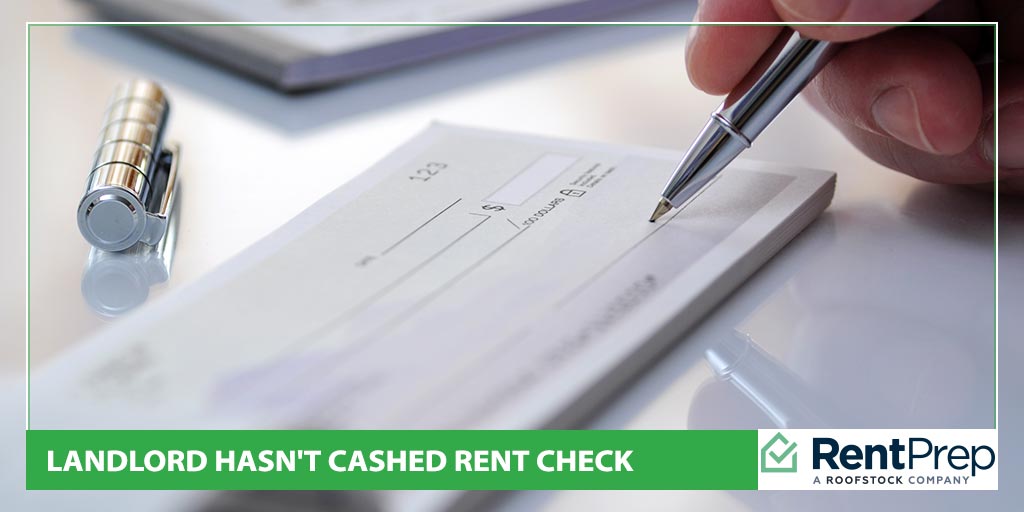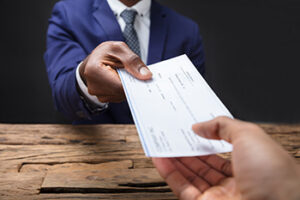
While more landlords and tenants are turning to electronic deposits to take care of the rent, there are still plenty of rent transactions that take place using a good old-fashioned paper check. We hear from nervous tenants that say their landlord hasn’t cashed their rent check yet.
When tenants write a personal check, it gives their bank permission to release funds to your account. Problems can arise when you hold onto a rent check for too long without depositing it, so it’s a good idea to understand exactly how long you can hold a rent check before you can get yourself and your tenant into trouble.
Financial Traffic
While in theory, a tenant will write out a check to represent funds in the bank and you as a landlord should be able to cash that check at any time and the funds would be there. However, in reality, there are many demands on a person’s bank account and some people are just not financially savvy enough to manage their money well enough to guarantee that all the checks they’ve written will be honored for long.
It’s almost never a good idea to hold onto a rent check for long, and the sooner you get it deposited into your bank and your bank requests funds from the tenant’s bank, the more likely you are to avoid bounced check issues due to insufficient funds.
When to Deposit

It’s always a good idea for landlords to deposit any rent checks as soon as possible. Some landlords and property managers have a policy of same day deposits—the day that the check comes in, it goes into the bank by that afternoon.
Many also take advantage of their bank’s night drop box, which allows you to put your check in an after-hours deposit slot where bank tellers can process it first thing the next morning. This is especially handy when it’s hard to get to the bank during business hours.
Finally, many financial institutions are introducing a digital deposit system that allows customers to take a photo of the check using a smartphone, thereby transmitting the information directly to the bank without ever having to make a physical stop at the brick-and-mortar location.
Stale-dated Checks
Banks generally will honor a check with a date older than six months, known as a stale-dated check. State and national banks may have slightly different time frames on this, but in general, banks must pay out on checks that are dated up to six months from the date on the check.
Even if the check you hold for rent is dated for longer than six months, the bank may still honor it and transfer funds from the tenant’s account to yours. Some banks have a policy of honoring checks written up to one year ago, while others may define a policy somewhere in between.

Notice that some tenants may put a stop payment on a check that hasn’t been cashed out in a reasonable amount of time. A stop payment lets the bank know that their customer does not want the funds withdrawn when the check is presented. A stop payment is common with people who are responsible with their money and have noticed that a check hasn’t cleared their account for quite some time. They would rather pay the small fee for the stop payment and stay in control of their money than to risk having you present the check when they are not ready for funds to be withdrawn.
The best thing to do when you have a stale-dated check situation is to contact the tenant and let him or her know that you will be depositing the check in the next day or so. This gives the tenant a chance to ensure that funds are available and to make other arrangements if necessary. The tenant may want to write you a new check with a more current date, for example, so the bank will not experience holdups or delays in cashing it out. As a landlord, it’s in your own interest to not mess up your tenant’s cash flow if you can help it.
Landlord Tips for Rent Checks
Be consistent when it comes to depositing rent checks so your tenants can have some stability in knowing what to expect. If you collect rent on the 5th of the month and generally deposit them within one day, don’t suddenly deposit the rent check extremely late in the month. While it is your right to do so, you don’t want to cause insufficient funds fees for your tenants and start a spiral of cash flow problems.
If paper checks are causing your tenant trouble and giving you headaches, it might be a good time to work out a direct deposit plan with your tenant or other form of electronic transfer. You could even offer an incentive for your tenant to do so. Whether you continue to accept paper checks or move to a more modern method, remember that communication is always important when it comes to working out solutions with your tenants.
Do you still accept paper checks? Why or why not? Please share this article and let us know your opinions in the comments below.

